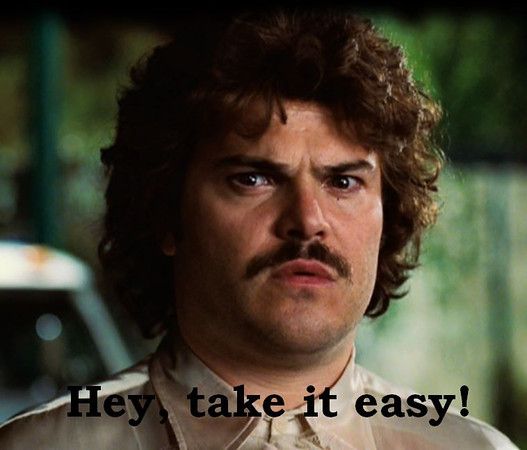



It’s a known fact that Google’s heavy crackdown on search spam in the recent years led to a drastic change in the SEO industry. Google’s algorithmic penalties in the form of Panda and Penguin and its massive manual penalty drive not only affected the SEO community (largely those who had adopted spammy or questionable practices that violated Google’s guidelines), but also the blogging/publishers’ community.
A Quick recall
Many blogs/content publishing websites had got affected due to Google’s crackdown on spam primarily because they had literally turned into content farms and link suppliers to the SEO community. These blogs needed articles which were contributed by the SEO community and in return the SEOs needed mentions, traffic and links ( primarily links ) – it was a fair deal after all and everything was hunky dory until the crackdown happened – suddenly things changed and the blogging community had become cynical, cautious and averse to guest blogging. Ah, guest blogging, one of the favorite activities of the SEO community came under the scanner – adding fuel to fire, Google had issued specific warnings regarding guest blogging and the misuse of it to gain manipulative links.
What followed after this painful phase is a series of steps taken by the blogging/publishers’ community, some good and some bad – let’s discuss both.
Some of these steps should have been taken from the beginning, which could have prevented the whole bad situation that the blogging community slipped into. Many blogs came up with stricter quality control guidelines including saying ‘no’ to manipulative anchor links in author bio and not accepting articles of low quality or of lesser word count (which are primarily written only for the sake of gaining links) – such guidelines have already been place in case of leading/popular blogs, which I call the tier I blogs – these stricter guidelines were adopted by rest of the community much later as a reaction to Google’s crackdown.
These are positive and appreciative steps in the right direction. But the after-effects of Google’s crackdown also resulted in some negative/adverse steps taken by the blogging community which have affected all the stakeholders involved – this article discusses about them and also offers a piece of advice to the blogging community.
The objective of the article is not to show the blogging community in a bad light (which I am very much a part of), but to initiate a dialogue on how these negative steps are hurting the community more than benefitting it.
These issues that I discuss in this piece are not just my observations but I have myself faced them dealing with blogs/publishing websites out there. Here we go.
• Many stopped accepting guest posts totally – why? Was guest blogging the reason for the situation that we found ourselves into? Nope. Instead raise the quality standards that you set for guest blogging – accept only high quality articles that provide value to your readers and not the ones written simply to gain links. Many blogs did come up with stricter quality guidelines, a step which actually makes sense and it’s a better solution than stopping to accept guest posts.
Remember, it creates a huge opportunity for other blog owners who might be tactfully using this situation to attract talented guest bloggers who are contributing effectively to help them grow their blogs. It’s actually happening now.
• No author page/bio or inadequate credit to the author – This one came as a real surprise to me when I started looking for good sites/blogs to get my articles published. Many blogs out there have stopped giving proper space for author bio – no description or links – only author name is displayed. It made me wonder why would someone take so much effort to write well-researched, thought-provoking and valuable articles for a blog’s audience unless he/she is given due credit with a chance to promote his/her business/website?
Some of these blogs do have affiliation with authors who regularly contribute posts to their sites leaving one wondering what do they get in return (they may be part-owners or may have some other deal with them) but it definitely discourages genuine contributors out there who intend to contribute high quality articles at the same time expect a fair share of benefits from these blogs in the form of branding and promotion.
• No or lukewarm response – Many of the blogs don’t even bother to respond to guest blogging proposals even though sites have dedicated guest blogging section ( obviously outdated ) and out of the few responses you receive, most of them are discouraging ones. It is agreed that these blogs are often bombarded with spammy guest blogging requests/emails whose sole intention is to submit low value content for links only but it would be a time-saving step to update the guest blogging section with a clear announcement that you have stopped accepting guest posts or if you do accept, it makes sense to spend some time to segregate genuine requests from spammy ones and respond to the genuine ones promptly.
• No link or paid link – Many blogs don’t allow links to the authors’ websites in the author bio. One of the objectives of guest blogging, from an author’s perspective, is to attract referral traffic/ gain brand visibility. The easiest way for a reader to read more about the author or his business is to click on the link on the author bio and visit his website. Out of those who allow links, most of them have a policy that allows only ‘nofollow’ links.
The primary objective of guest blogging should never be links and trust me, for genuine contributors, followed links would be a low priority expectation but the larger point for the guest blogging community to ponder upon is, if the article is simply great and the author is a genuine contributor, where is the conflict in giving a ‘voluntary’, ‘editorially placed’ link to the author’s website so that his/her website can gain some trust in the eye’s of Search Engines? In fact, adding ‘nofollow’ tag to a non-manipulative, normal link looks unnatural. Linking is a way of giving credit to the author for his genuine efforts/work.
Yes, as a blog owner you should discourage spammers, avoid giving manipulative anchor links or linking to spammy or low quality websites but adding a normal link to a genuine author’s website is perfectly okay. Isn’t it? As long as the intention is right, giving links is okay.
Note: The whole thing of not giving links or nofollowing links in author bio started with Google giving warnings to blog owners to not to add manipulative links in author bio, specifically, the anchor links. Google even went to an extreme level of suggesting blog owners to add ‘no follow’ tags to guest blogging links at one point in time – but understand that their objective at that point in time was to nullify the effects of manipulative anchor links pointing to websites across the web from these blogs. They primarily expected bloggers to nofollow those links which were acquired as a part of guest blogging program run solely for the purpose of link building.
Dear content publishers/bloggers, it’s really amazing to note that many of you who are averse to giving links to authors’ websites or tend to nofollow them are happy to give followed links in both author bio and also in body content if the author is ready to pay you. Well, giving followed links for payment is a serious violation of Google’s guidelines which you happily oversee. Why is it so?
It has also become a common practice to ask the guest bloggers to pay for the articles they intend to get published on blog owners’ websites. I’m not referring to promotional posts but articles that bring value to readers.
It is really funny to see many blog owners asking money for articles to be published on their blogs. These are not highly popular blogs which are capable of driving good amount of referral traffic or providing high visibility or branding but most of them are moderately popular with some decent amount of traffic. Why would an author take so much effort to write an outstanding piece and then pay to get it published on your blog which will not result in a positive ROI?
Aren’t the authors already giving you quality content for which you would have to give him/her due credit? If you intend to target people looking for blogs to get their crappy articles published for links and make them pay? How different are you from them?
All these issues boil down to two major things – Google’s crackdown has split the blogging community into two (exceptions are the high quality blogs run by already established bloggers) – those who have become skeptical with respect to guest blogging and have become averse to it and those who try to target and milk ‘those’ SEOs/marketers who are desperately looking for blogs to get their average, low quality articles published and gain links.
In this whole negative scenario, genuine guest bloggers who intend to bring value to readers and in return expect due credit and branding/visibility are getting punished for no fault of their own.
The blogging community is full of amazingly talented and knowledgeable people because of whom the community thrives but at the same time in the recent times I see many of the blog owners/content publishers’ attitude towards authors/guest bloggers (unless well established) has been negative or ‘take it for granted’ – unresponsiveness, casual mails with a superior attitude, sending terms and conditions that offer almost no benefit for the authors etc.
I appeal to ‘those’ bloggers/content publishers to stop viewing guest blogging negatively and approach it with more positivity. Yes, there is still a huge spamming community out there grabbing every opportunity to misuse guest blogging with a sole purpose gaining links only. But we cannot let them influence us and be the deciding factor of our course of action.
Alternatively, we can play great role in setting up higher standards for guest blogging and encourage authors by offering better branding and exposure in exchange of high quality, out of the box articles. At the same time, let’s also create an environment where ‘guest blogging for just links’ is not encouraged without being negative and arrogant.
Authors and blog owners/content publishers together with mutual respect and strong relation can make guest blogging work in a better way where all the stakeholders are benefitted. Guest blogging, if done right, actually facilitates exchange of ideas, fuels healthy discussions and ultimately benefits the readers and all the other stakeholders involved. It also fuels blogs’ growth with the right guest contributors on board.
It’s time for us to introspect and course-correct. Constructive views are welcome.
 An open Letter to Guest Bloggers By a Publisher.
An open Letter to Guest Bloggers By a Publisher.
 45 Blogging Tips for Beginners – shared by Blogging Experts at FirstSiteGuide
45 Blogging Tips for Beginners – shared by Blogging Experts at FirstSiteGuide
 10 Blogging Questions Answered by Seasoned Blogger Jeet Banerjee
10 Blogging Questions Answered by Seasoned Blogger Jeet Banerjee